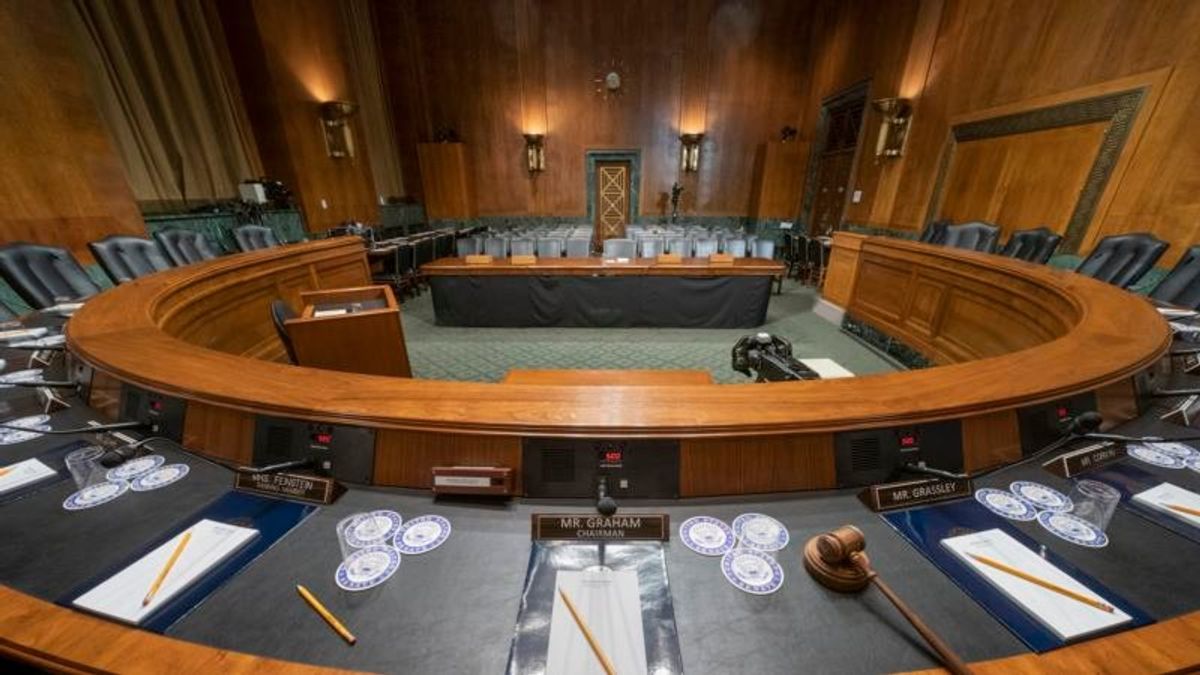
AG Barr to Face Senate Panel Over Mueller Report
AG Barr to Face Senate Panel Over Mueller Report

U.S. Attorney General William Barr is facing questioning from lawmakers Wednesday after the release of Robert Mueller's report earlier this month investigating Russian interference in the 2016 presidential elections.
Barr will meet with the Republican-led Senate Judiciary Committee for a session that is expected to last at least three hours.
Barr will undoubtedly face questions about a Washington Post report out late Tuesday that Mueller contacted the attorney general, both by letter and a phone call, to impress upon him to release the summaries of the report written by his team. Barr instead released his own summary, which Mueller felt failed to capture the full "context, nature, and substance" of the investigation's conclusions.
The attorney general drew fire from the Democrats and other critics for "summarizing" a report that runs nearly 400 pages in just four pages and determining that Trump did not obstruct justice because he'd not been involved in an "underlying crime" in connection with Russian election interference.
SEE ALSO:
Mueller Frustrated With Barr Over Portrayal of Findings
Barr was also widely criticized for holding a press conference to discuss the findings hours before either members of Congress or the media had a chance to read the report.
Barr told reporters that it exonerated Trump of colluding with Moscow and said that later, after assuming power, Trump had "no corrupt intent" to obstruct the probe.
Barr, a Trump appointee as the country's top law enforcement official, said the president "took no act that in fact deprived" Mueller of "documents and witnesses necessary to complete his investigation."
SEE ALSO:
Mueller Report Lays Bare Deep US Partisan Divide
Barr concluded, "Apart from whether [Trump's] acts [as president] were obstructive, this evidence of non-corrupt motives weighs heavily against any allegation that the president had a corrupt intent to obstruct the investigation."
But Mueller cited 11 instances of possible obstruction of the investigation by Trump, saying that "while this report does not conclude that the president committed a crime, it also does not exonerate him."

Barr also revealed that Trump's lawyers were shown an advance copy of the report but were not allowed to make any changes. He said the president's lawyers made no attempt to assert executive privilege about White House conversations to delete any material from the report.
Late last month, in a summary of Mueller's findings, Barr said the special counsel had concluded that Trump had not colluded with Russia, but reached no decision on whether he had obstructed justice. With Mueller not making a decision on the obstruction issue, Barr said he and Deputy Attorney General Rod Rosenstein decided that no obstruction charges against Trump were warranted.
Barr told reporters it was his prerogative to make the decision to not charge Trump.
Democrats have said they want to question Barr on how he reached his no-obstruction decision.
Barr was also expected to testify before the Democratic-led House Judiciary Committee on Thursday but that appearance is uncertain.
 Oprah ‘Quietly Figuring Out’ How to Wield Her Political Clout in 2020Next PostDemocrats Face Setbacks in Recruiting Top Senate Candidates
Oprah ‘Quietly Figuring Out’ How to Wield Her Political Clout in 2020Next PostDemocrats Face Setbacks in Recruiting Top Senate Candidates







